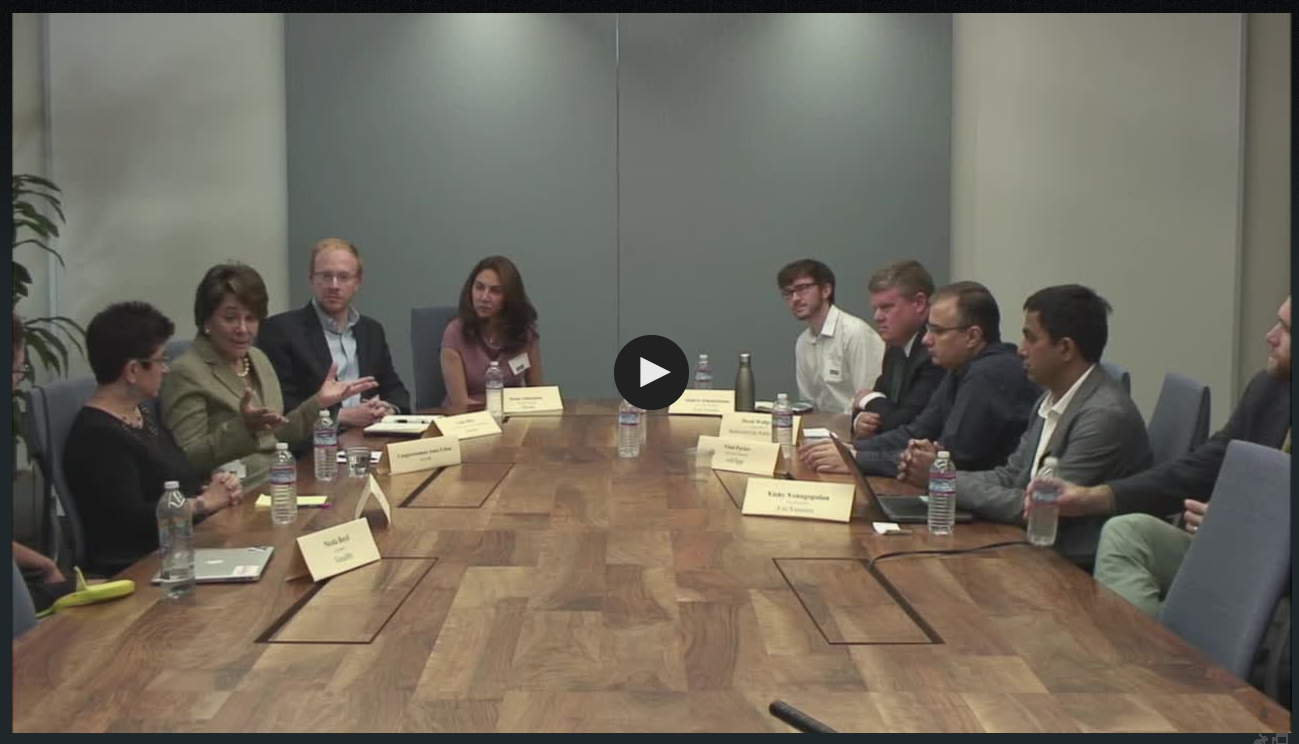Rep. Anna Eshoo and Silicon Valley Advocates Push Back on FCC’s Net Neutrality Change
MOUNTAIN VIEW, California, July 6, 2017 – The world looks to the United States to see how the country treats its own inventions, Rep. Anna Eshoo, D-California, said last week at a June 26 roundtable on the subject of net neutrality at Mozilla Headquarters here. The roundtable is part of a push to co
Casey Ryan

MOUNTAIN VIEW, California, July 6, 2017 – The world looks to the United States to see how the country treats its own inventions, Rep. Anna Eshoo, D-California, said last week at a June 26 roundtable on the subject of net neutrality at Mozilla Headquarters here.
The roundtable is part of a push to combat Federal Communications Commission Chairman Ajit Pai’s efforts to reverse public utility regulation of broadband internet access service.
Despite increasing partisan rhetoric on the issue, Eshoo said she still doesn’t think of net neutrality as a partisan issue. And she said she preferred to think of the FCC rules as protections.
Gigi Sohn, counselor to former FCC Chairman Tom Wheeler, said cable providers were able to choose everything that went on television and what time, but then the internet changed everything. Sohn doesn’t want to see the “cable-ization” of the internet, she said, and AT&T, Comcast and other internet providers want to turn the internet into a new form of cable.
Smaller websites won’t get the quality of service they need, and no venture capitalist would invest in a startup if it needs to pay a toll to an internet provider to get preferred carriage to customers, she said.
Nicola Boyd, cofounder of VersaMe, said there will be a decrease in investment and interest in creating new startups if the barriers are continuously increased. She said internet leveled the playing field and was the biggest accelerator of innovation.
Vishy Venugopalan, vice president of Citi Ventures, said there is a need to make sure data rails are mutual and that internet providers don’t peak into the data being sent.
Derek Wolfgram, library director of Redwood City Public Library, said Net Neutrality protects intellectual freedom and access to information for libraries. He said the removal of net neutrality protections would threaten content of all types, such as different points of views. He said he sees students sitting in cars outside the library using its internet to do school work, and that will be threatened too.
Vlad Pavlov, chief executive officer and cofounder of rollApp, said his company offers free tiers and paid tiers. According to its website, rollapp “builds an online application virtualization platform, which allows to run any application on any device with just a web browser.”
Of the more than 500 high schools that use his company’s service, only one of those schools actually uses the paid tier. If his company had to pay extra, it would likely quit offering the free tier.
Eshoo urged everyone speaking at the roundtable to put their opposition to Pai in writing. She said she don’t see anything broken with the current system, as implemented in 2015 by former FCC Chairman Tom Wheeler, and which needed to be fixed.
She criticized net neutrality opponents for pushing the line that net neutrality is killing investment through heavy-handed regulations.
“They’re speaking in headlines that grab people’s attention, and in a split second, they would say, ‘Well, I’m not for that,’” Eshoo said.
She said she thinks Silicon Valley, the heartbeat of innovation, is decisively for net neutrality rules.
And she criticized the Republican Party, which generally opposes net neutrality regulation. Its love for competition is gone, and they want to squash competition like a bug, she said.
(Photograph of the roundtable from Mozilla’s web site.)








Member discussion